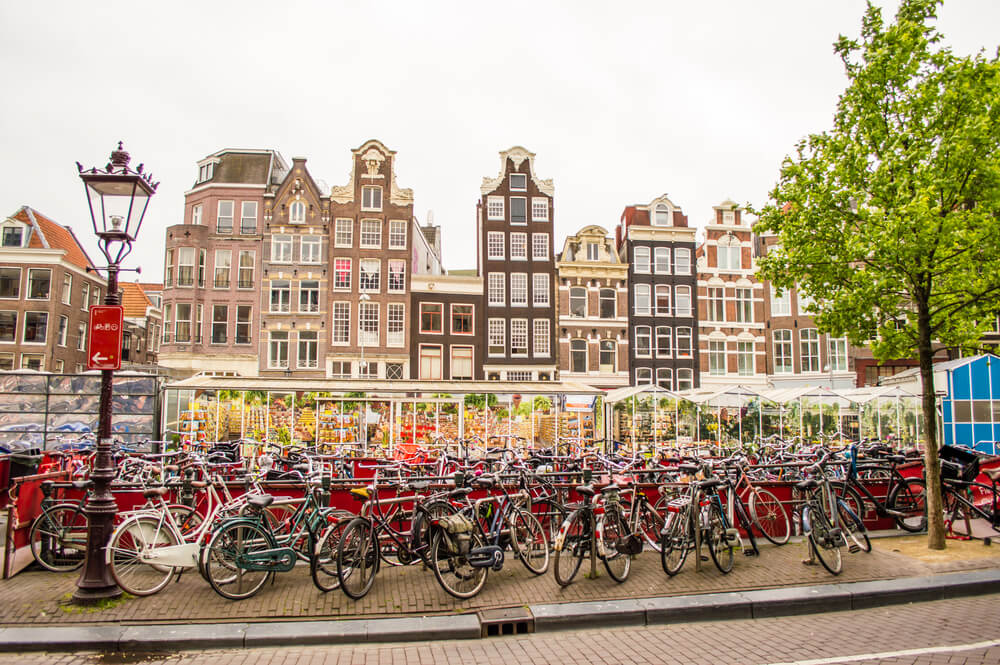Best private schools in France and their cost
Planning to move your family to France and looking for a private school? Check out our complete list of the best private schools in France and their cost.

Louisa Wanderoth, German student at The University of Amsterdam
After completing my first year at the University of Amsterdam, it was finally time for me to find a job. Having spent a year tackling the extensive reading list and coping with exams and assignments, I felt ready to dedicate more of my time to the workplace. The start of the summer holidays gave me the perfect opportunity to send out applications. For the past three weeks I've been working in a customer care office in Amsterdam. The work is fun, the colleagues are nice and it’s a great feeling to earn my own money again. For you job seekers out there, I have gathered some helpful advice to help you enter the Dutch working world smoothly.
1. Use your language skills
Whatever foreign languages you speak, use this as a starting point to find employment. Touristic cities like Amsterdam offer a huge range of jobs, especially for English, French and German speakers. These languages are asked for in restaurants, shops or call centres. I found my current job by searching for work for German speakers online. Make sure you mention all your language skills when asking for free vacancies.

2. Learn the local language
The first few days of my job search were quite frustrating. I trawled around town asking for any vacancies in seemingly endless restaurants, bars and shops. For most places, the answer was the same - you need to speak Dutch, highlighting the importance of speaking the local language. If you are not planning on learning the language at all, try to find work within the touristic spots as there are much fewer Dutch customers.
3. Get a BSN-Number
A BSN-number is a citizen service number of identification that you receive when you register in a city in Holland. This number is needed to receive all kinds of documents and to sign contracts. Almost all employers in the Netherlands ask for your BSN-number before signing a working contract.
4. Dutch Health Insurance
As well as the BSN-number, some employers require you to get Dutch health insurance. For a student, this health insurance usually costs around €30 per month. You can ask your employer for a recommendation and there are plenty of websites that compare the rates of different insurance companies.

5. Minimum Wage
Minimum wage in the Netherlands is age dependant. The older you are, the more you earn and the more taxes you have to pay. It starts to apply at fifteen and gradually increases until twenty-three. From then onwards, the minimum wage remains the same. The existence of a minimum wage does not mean all employers stick to it - many will pay more for part time jobs too.
6. Travel Costs
If you have to commute further than 10km to get to your workplace, you are eligible for a contribution towards your travel costs. This applies to both private and public transport.
7. Contract Length
There are different standard contracts for student jobs. A lot of restaurants and bars work with zero hour contracts, so there is no minimum number of required hours to work. Most of the time employers send out a shift plan where you can fill in the hours you’re available. However, a zero hour contract can also mean you need to come to work on very short notice when a colleague is ill or your boss needs more staff. There are also part-time contracts with fixed hours that range from eight to thirty-four hours per week. You’re normally contracted for a set time period, varying from six months to a year, with the opportunity to extend at the end.

*Please see terms of use and product availability for your region or visit Wise fees and pricing for the most up to date pricing and fee information.
This publication is provided for general information purposes and does not constitute legal, tax or other professional advice from Wise Payments Limited or its subsidiaries and its affiliates, and it is not intended as a substitute for obtaining advice from a financial advisor or any other professional.
We make no representations, warranties or guarantees, whether expressed or implied, that the content in the publication is accurate, complete or up to date.

Planning to move your family to France and looking for a private school? Check out our complete list of the best private schools in France and their cost.

Planning to move to South Africa and looking for a private school? Check out our complete list of the best private schools in South Africa and their cost.

Planning to move your family to Ireland and looking for a private school? Check out our complete list of the best private schools in Ireland and their cost.

Considering teaching English in Japan? Explore our insightful guide on requirements, teaching programs, job prospects, salary expectations, and more.

Considering teaching English in Taiwan? Explore our insightful guide on requirements, teaching programs, job prospects, salary expectations, and more.

Considering teaching English in China? Explore our insightful guide on requirements, teaching programs, job prospects, salary expectations, and more.